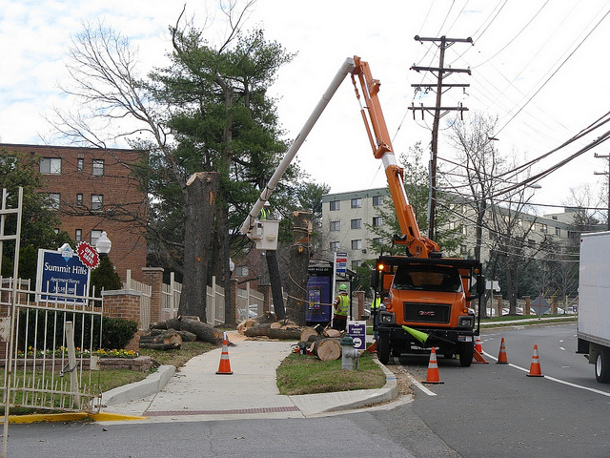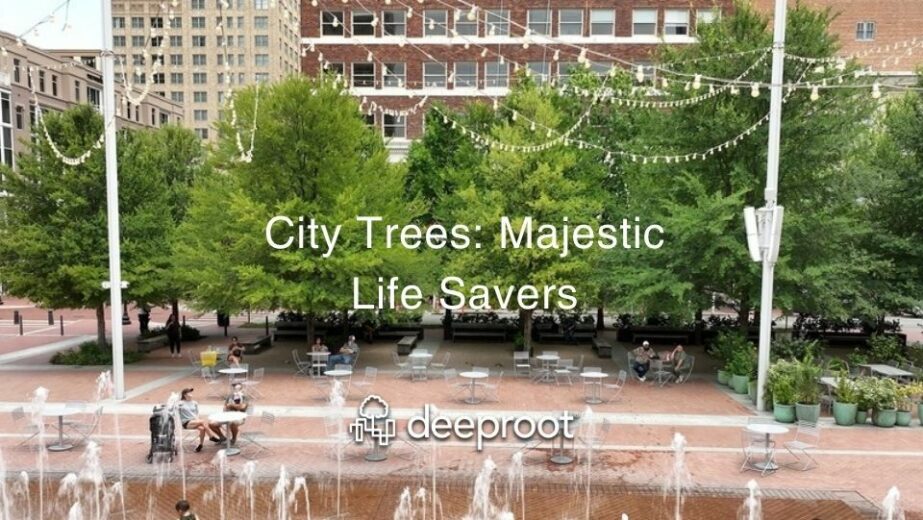
A large tree is taken down in Montgomery County, MD. Flickr credit: dan reed!
A couple of weeks ago, Montgomery County, MD held a public hearing on two bills intended to protect trees that seem to be causing divisions in the community. It’s interesting how an issue as seemingly harmless as tree preservation can cause a political kerfuffle. I shouldn’t be surprised, though. The devil is, as they say, in the details.
One bill, 41-12, would require a permit for certain activities on public streets that might affect adjacent trees. Bill 41-12 would also “authorize the Department of Transportation to create a tree replacement fund to pay for needed roadside trees; and would direct the County Executive to adopt regulations further specifying roadside tree work standards” to protect and conserve trees. I haven’t seen or read any objections to 41-12.
A second bill, 35-12 would require property owners on lots smaller than one acre who want to remove trees to pay into a fund dedicated to replacing the trees and/or protecting existing ones. This is where things are getting more complicated.
According to the Greater Greater Washington blog, Montgomery County’s Forest Conservation Law already requires this on lots that are larger than one acre. But a discussion paper from Resources for the Future titled “Lot Size, Zoning, and Household Preferences: Impediments for Smart Growth?” (April 2009) lists the average lot size of single-family house sales in Montgomery County at just 0.327 acres, well under the one-acre threshold. Bill 35-12 stands to affect a significant number of residents. The same paper estimates that single-family dwellings comprise 50 to 65 percent of all residential dwellings in the county.
Conservation Mongtomery and the Mongtomery Countryside Alliance, local non-profits, publicly support both bills. A local association of home builders, Renewing Montgomery, does not. They’ve posted about the bills on their website, stating that new legislation will “create new restrictions” on their property rights and “will likely have unintended consequences that are impossible to predict.”
It’s certainly possible to create bad legislation around good causes. Being no expert at reading bills, I don’t feel qualified for any real analysis of the legislation. Having said that – and with the admission of my obvious bias – I don’t find anything to object to here. I’ll be interested to see how these bills fare and, if they pass, what sort of fee structure will be required of property owners who remove trees.





Leave Your Comment